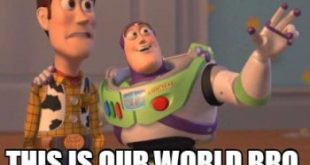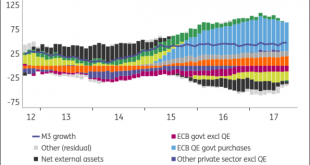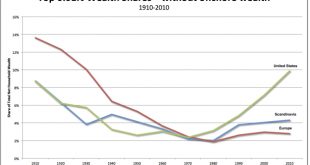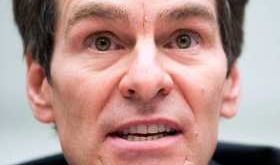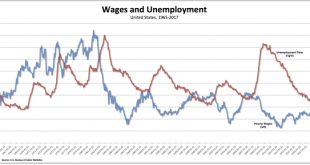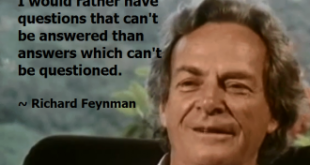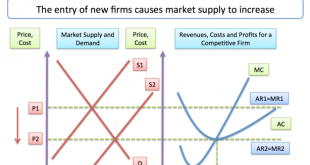from Lars Syll Our admiration for technical virtuosity should never blind us to the fact that we have to have a cautious attitude towards probabilistic inferences in economic contexts. Science should help us disclose causal forces behind apparent ‘facts.’ We should look out for causal relations, but econometrics can never be more than a starting point in that endeavour since econometric (statistical) explanations are not explanations in terms of mechanisms, powers, capacities or causes....
Read More »Neoclassical economics usually reads its models backwards.
from Edward Fullbrook In public, including in the training of economists, Neoclassical economics usually reads its models backwards. This gives the illusion that they show the behaviour of individual economic units determining sets of equilibrium values for markets and for whole economies. It hides the fact that these models have been constructed not by investigating the behaviour of individual agents, but rather by analysing the requirements of achieving a certain macro state, that is, a...
Read More »Keynes was right about Quantitative Easing (QE)
Did the growth of money caused by QE in the Eurozone (graph) stimulate economic activity? Not enough. According to John Maynard Keynes, in ‘The general theory’ (1936), “The relation of changes in M (money) to Y (income) and r (the interest rate) depends, in the first instance, on the way in which changes in M come about.” Put differently: credit and not money makes the world go round. Money creating lending to enable household purchases of existing homes has a quite different effect on...
Read More »Conspicuous tax evasion
from David Ruccio The release of the so-called Paradise Papers confirms, with additional names and more salacious details, what we already knew from the Panama Papers and other sources: the world’s wealthy increasingly use offshore tax havens to engage in conspicuous tax evasion. That’s on top of their participation in conspicuous consumption, conspicuous philanthropy, and conspicuous productivity. According to Annette Alstadsæter, Niels Johannesen, and Gabriel Zucman, in a study...
Read More »The ‘tiny little problem’ with Chicago economics
from Lars Syll Every dollar of increased government spending must correspond to one less dollar of private spending. Jobs created by stimulus spending are offset by jobs lost from the decline in private spending. We can build roads instead of factories, but fiscal stimulus can’t help us to build more of both. This form of “crowding out” is just accounting, and doesn’t rest on any perceptions or behavioral assumptions. John Cochrane And the tiny little problem? It’s utterly and completely...
Read More »Productivity growth is up, are the robots finally coming?
from Dean Baker The Bureau of Labor Statistics (BLS) reported that productivity grew at a 3.0 percent annual rate in the third quarter of 2017. While this report got little attention, it is potentially very good news. Before going into the good news part, it is worth briefly saying a bit about what productivity is. Productivity measures the value of the goods and services produced in an hour of work. It is the main determinant of living standards. If we want more or better housing or...
Read More »Waiting for Godot
from David Ruccio The official unemployment rate continues to fall in the United States. And everyone, at least among top policymakers and the business press, has been promising that workers’ wages will finally break out. As it turns out, the unemployment rate (the red line in the chart above) in September was 4.1 percent, far below the high of 10 percent in October of 2009 and a new low for the so-called recovery from the Second Great Depression. However, hourly wages (for production and...
Read More »When economists become as modest as the physicists
from Lars Syll In advanced economics the question would be: ‘What besides mathematics should be in an economics lecture?’ In physics the familiar spirit is Archimedes the experimenter. But in economics, as in mathematics itself, it is theorem-proving Euclid who paces the halls … Economics … has become a mathematical game. The science has been drained out of economics, replaced by a Nintendo game of assumption-making … Most thoughtful economists think that the games on the blackboard and...
Read More »Demonetisation in India: the marketing view
One of the advantages of marketeers, compared with neoclassical economists, is that they do not assume things about consumers but observe them or ask them questions. So did Nielsen India, a large marketing company, less then a month after the infamous Indian demonetisation. The report is ungated and, for one thing, contains valuable information about the female experience. An excerpt PART B: DECODING CONSUMER SENTIMENT (Source: Nielsen India)To pick up the consumer sentiment at this point...
Read More »Global rentier capitalism
from David Ruccio Mainstream economics lies in tatters. Certainly, the crash of 2007-08 and the Second Great Depression called into question mainstream macroeconomics, which has failed to provide a convincing explanation of either the causes or consequences of the most severe crisis of capitalism since the Great Depression of the 1930s. But mainstream microeconomics, too, increasingly appears to be a fantasy—especially when it comes to issues of corporate power. Neoclassical...
Read More » Real-World Economics Review
Real-World Economics Review

